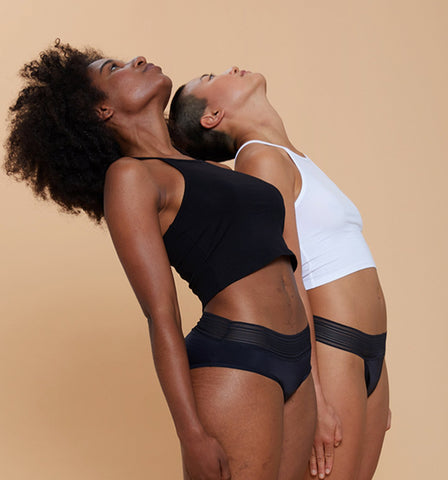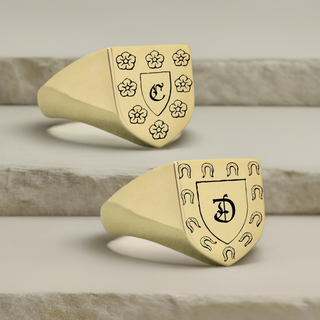The environmental crisis is one of (if not) the biggest our generation will face. Species are dying off at a rapid rate, oceans are overfished and polluted, poisonous gases are pumped into our air whilst our green spaces (which turn carbon dioxide into oxygen) are being destroyed.
There's so much to fix and it can feel seriously overwhelming trying to figure out where to begin. But big changes start with small steps; start 2018 off right with 10 simple ways to reduce your environmental impact.
1. GIVE UP THE PLASTIC BAGS
Did you know a single plastic bag can take anywhere between 10-1000 years to decompose in the environment? You can’t recycle plastic bags and when left, animals can consume or get tangled in them - often resulting in death.
A great way to cut plastic bags out is to buy cotton or calico tote bags. They’re super strong, washable and reusable. An added bonus is they’re comfortable to carry when heavy and rip free!
I used to forget mine all the time, so now I keep one folded up in the pocket of each of my go to bags and jackets. I think I’ve had to get one plastic bag in the past 2 months, so it’s deffo a trick that works.
If you don't already have one, why not grab one of ours (with our snake emblem; designed by the amazing Mercedes Bellido, here).
2. CUT DOWN ON PACKAGED FOOD
- They mass grow greens which destroy soil from overuse of fertilisers and pesticides.
- The large quantity of fresh produce usually means there's a lot of food waste.
- Most products are packaged in cellophane plastic wrap, which can’t be recycled.
- Grocery stores don't separate any food waste from the packaging, resulting in large quantities of un-recycled trash.
- Grocery stores often discard what they consider to be aesthetically unpleasing fruit and vegetables - which are perfectly edible. This to me is completely mental.
- Grocery stores often sell fresh produce in bulk, which is more than most people need for what they plan to cook. This promotes food waste at home.
3. USE ALTERNATIVE SANITARY PRODUCTS
I only got onto this one recently, but I was shocked when I saw how long it takes for sanitary products to break down.
A single tampon can take 6 months (not including plastic applicators), whilst sanitary pads can take 500 years due to their use of crude oil plastics. Women have approximately 456 periods a lifetime according to a study - which can cost over £18,000. So not only are periods wrecking the environment (and great knickers everywhere), but they’re wreaking havoc on our bank accounts too.
I think I speak for earth and women everywhere when I say, fuck you Aunt Flow. But fear not, there are alternatives! THINX is an underwear brand that offers period proof pants (they hold 2 tampons worth!)

Image from www.shethinx.com
Sure spending $30+ on a single pair of pants seems steep (especially when you’ll need a few to see you through the period). But long term you’ll be saving a ton of cash. You’ll also be able to sleep better at night knowing hundreds of used pads aren’t hanging out in a landfill somewhere until 2517 (ewww).
Second up, is a period cup; these bad boys are literally cups you put inside which you can rinse, clean and re-use. I’ll admit, this one doesn’t seem like something I’ll try just yet but I’ve heard a lot of excellent reviews. I think once you get past the initial hesitance, they’re actually great. Have you tried any of these or even something not mentioned? I’d love to hear your experiences in the comments!
4. CONSERVE ENERGY
Use rechargeable batteries for anything that requires them, as batteries take 100 years to biodegrade in the environment.
Another thing to do is use timer plugs. I was absolutely criminal at leaving my iPhone plugged in and falling asleep with the tv on when I got my first flats - which definitely resulted in some savage bills and major guilt about wasting energy. For the low price of £3, you can buy a timer which turns everything that should be off at a certain time. You’ll find your energy usage will drastically drop - resulting in lower bills and all around less self hatred.
5. DONATE OR RESELL
Got clothes you don't want to wear anymore? Donate them to your local charity shop or eBay them. It's true what they say - one mans trash is another mans treasure. I've actually found some of my favourite pieces on eBay and in charity and thrift shops.
For any clothing not suitable for the charity shop or resale; textile waste can be recycled locally. Check online for drop off points or pick up services.
6. SHOP SMART
As well as buying second hand, do your homework on brands you shop with. 'Eco friendly' and 'conscious' are buzz words that have been thrown around a lot this year, even by huge high street stores. But what they don't tell you is that although their fabric may be slightly more environmentally sound, their production methods certainly are not. This includes using labour in countries where workers are not fairly compensated and factory regulations are relaxed.
There's a lot of great pioneers for the sustainability movement, like Reformation and Stella McCartney. But those brands aren't accessible to everyone. Ultimately, investing in well made pieces of clothing will save you money and cut down on waste.
A great way I realised this was with my denim. When I was younger I would go through at least 5 pairs of jeans a year; bought for about £30 a pair on the high street. They would always be misshapen on the knees or be coming apart at the seams within a couple of months. Eventually I started investing in a good pair of Levis (new and vintage). It's now been 2 and a half years and you know how many pairs i've bought? 2. They set me back £80 a pair (£160 total). Had I continued my previous buying pattern over those 2.5 years, I would have spent £375 on over 10 pairs of substandard jeans. In the long run i've saved £215 and a lot of trips to the charity shop!
7. BUY A LOT OF COFFEES? GET A REUSABLE CUP
 Image from www.redtempleprayer.com
Image from www.redtempleprayer.com
8. SAY NO TO BOTTLED WATER


9. GET ACTIVE
10. R E C Y C L E
When you realise how long things take to break down, you’ll definitely think twice about tossing your trash in any old place. I have also sworn off tinfoil since finding out it does not biodegrade at all, which is a shame but I mean, who can justify it.
Paper, cans, glass, fabrics and most plastics can all be recycled. If you go through a lot of packaging (I know I do as I have a business), pay for extra recycling bins on your local councils website. We have 2 brown bins and 2 blue bins because my studio is at my house, it takes up garden space but honestly it’s worth it.
How long does it take to break down:
Cigarette Butts - 10-12 years;
Monofilament Fishing Line - 600 years;
Rubber-Boot Sole - 50-80 years;
Foamed Plastic Cups - 50 years;
Leather shoes - 25-40 years;
Milk Cartons - 5 years;
Plywood - 1-3 years;
Painted board - 13 years;
Cotton Glove - 3 months;
Cardboard - 2 months;
Styrofoam- It does not biodegrade;
Nylon Fabric- 30-40 years;
Tin can- 50 years;
Ropes - 3-14 months;
Waxed milk carton- 3 months;
Aluminum cans- 200-250 years;
Train tickets - two weeks,
Canvas products - 1 year;
Batteries – 100 years;
Lumber- 10-15 years,
Sanitary Pads - 500-800 years;
Wool Clothing- 1-5 years;




